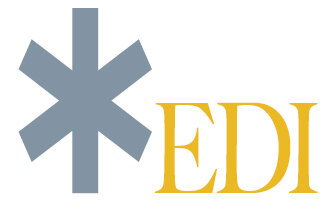Aiming for a target weight includes the unwritten subtext that at some magical point you must restrict intake in order to maintain said target weight. It is one of the most serious problems of unscientific approaches to recovery from an eating disorder: that weight is supposed to be within our conscious control (it's not).
Son-net: Flickr.com
Because an eating disorder is an anxiety disorder, it is important to address the validity of fears rather than allow for them to have unquestioning control over your choices and actions.
Being afraid of being fat is wrapped up in a lot of sociocultural misconceptions that the fat organ is somehow a visible expression of moral laxness.
Imagine you were a black girl or boy growing up in the southern United States some 60 years ago (or perhaps present day in fact). The sociocultural misconceptions of the day would be telling you that you are worthless; you are less than human and have no right to take up space; and you cannot wish or hope for anything in your life approximating self-determination or independence.
Please know that I don't want to group all types of discrimination together with this hypothetical point— there should be no comparisons made to fattism and racism. I use the example simply as a way to get you thinking about what you really believe and what you really stand for.
Many individuals with an eating disorder believe that the foundation of their avoidance of food is that they are afraid of getting fat.
The foundation of the condition is actually a misidentification of food as a threat. However, it is not registered as such by the conscious mind because being afraid of food is nonsensical. That's whyeating disorders change in their expression throughout history.
Your conscious pre-frontal cortex gets a barrage of panic signals when you are about to eat. Your threat identification system is firing up because it has detected food in the environment. The pre-frontal cortex only gets this message: "Panic! Abort! Move away! Get away!" but isn't given any hints as to what the source of the threat might be.
The very first time this condition is activated (most commonly through either voluntary or involuntary restriction of food (dieting or sickness)), the avoidance of food increases a sense of calm and feeling energized. Subsequently, approaching food fires up the physiologically unpleasant sensations of threat identification. The conscious mind ponders: "Why do I feel so uncomfortable around food and better when I'm away from it?"
The whole process of activation and reinforcement of an eating disorder is one of post-hoc rationalizations.
A few hundred years ago, you would be telling me "My biggest fear is succumbing to my body's putrid and evil needs, and hence displeasing God."
That’s the same neurobiological eating disorder with different sociocultural framings
Fundamentally food is not a threat unless it has been poisoned, tainted, or contains a very serious allergen in your particular case (think peanut allergy).
It is this foundational conundrum in recovery that is the reason why I go on and on about the necessity for engaging appropriate psychotherapeutic support
When you have a pre-frontal cortex-contrived, post-rationalizing fear that cloaks an underlying nonsensical fear, you need to engage in some heavy-duty brain re-training to really get the condition into remission and have it stay there.
And circling back to the issue of fattism, we cannot ignore the fact that the post-rationalizing fear of getting fat is not entirely a false fear on its own merits. But it's a fear that makes many people uncomfortable because we all ostensibly want to be egalitarian and ism-free in our dealings with others.
"I have fat friends and they look great so I'm not fattist, but..." is steeped in similar complex layers of cognitive dissonance and ambivalence as when someone starts a sentence with "I have black friends and we get on great so I'm not racist, but..."
Learningtoaccept (a member on this site's forums) came up with a good term for this dissonance "I'm a special snowflake."— everyone else can get fat/be fat, but not me because I'm a special snowflake.
And that snowflake is firmly attached to the dark underbelly of class, inequality and status.
Are you afraid of getting fat? Well you wouldn't live on this planet if you were not afraid of getting fat.
However once you have activated an eating disorder, many behaviors and attitudes that are others have the luxury of indulging in are no longer safe for you to maintain.
That can be seen as a loss or an improvement. Given that non-ED women get to pretend to be all for equality while maintaining their privileged status with "healthy eating and living", having an eating disorder can take you well beyond that superficial and duplicitous approach to equality and make you get honest real fast about yourself and others.
“Recover, but not too much” allows for continued indulgence in class, privilege and status. And I cannot personally pass judgment on that rationalization because I am not faced with choosing between my own health and indulging in all sorts of unscientific vanity behaviors that reinforce my status as a white woman in a very wealthy industrialized nation.
But I can at least identify that it is a rationalization and I can also confirm scientifically that it is one that is damaging to your health if you have an eating disorder.


